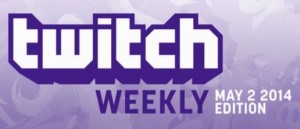May 19th, 2014
Here’s BBC’s version of tonight’s news story about Google’s proposed $1 billion acquisition of Twitch; you can find many more stories of equally pricey deals during the last few years. (Amazon ended up buying Twitch in August 2014 for $970 million).
There’s no point in pontificating about a new Internet bubble. The maneuvering of high tech firms is so unusual this time around that “bubble” doesn’t begin to describe the shape.
 Of course any of the recent acquisitions by Facebook, Twitter et al. led to similar bouts of eyebrow raising. We’re expected to somehow understand not only what the acquisitions mean but also the value of their value.
Of course any of the recent acquisitions by Facebook, Twitter et al. led to similar bouts of eyebrow raising. We’re expected to somehow understand not only what the acquisitions mean but also the value of their value.
I’m concerned that I’ve lost a grasp on the new rules of the new game.
Of course I get the broad strokes: mobile matters and video is everything. Social and mobile and 7-second videos are apparently optimal. Yes. I’ve got that.
In part it’s the big dollars that are tossed around with so little apparent concern. That I don’t understand. No wonder publishing is reeling.
For example WhatsUp Messenger, described as “a proprietary, cross-platform instant messaging subscription service for smartphones that uses the internet for communication,” which Facebook bought for $19 billion. This lead Sam Hamadeh, CEO of PrivCo, which analyzes private companies to comment “$10 billion is the new $1 billion.”
Could that be true?
Oh, I get it now. This time it’s different.
June 7, 2014: Slate: The headline shouts: “The car-service startup, Uber, is worth nearly as much as Hertz and Avis combined. Here’s why.” The article concludes “The real answer is that no one has the foggiest idea how much Uber will be worth once it matures. Anyone who tells you that he does is not to be trusted.”